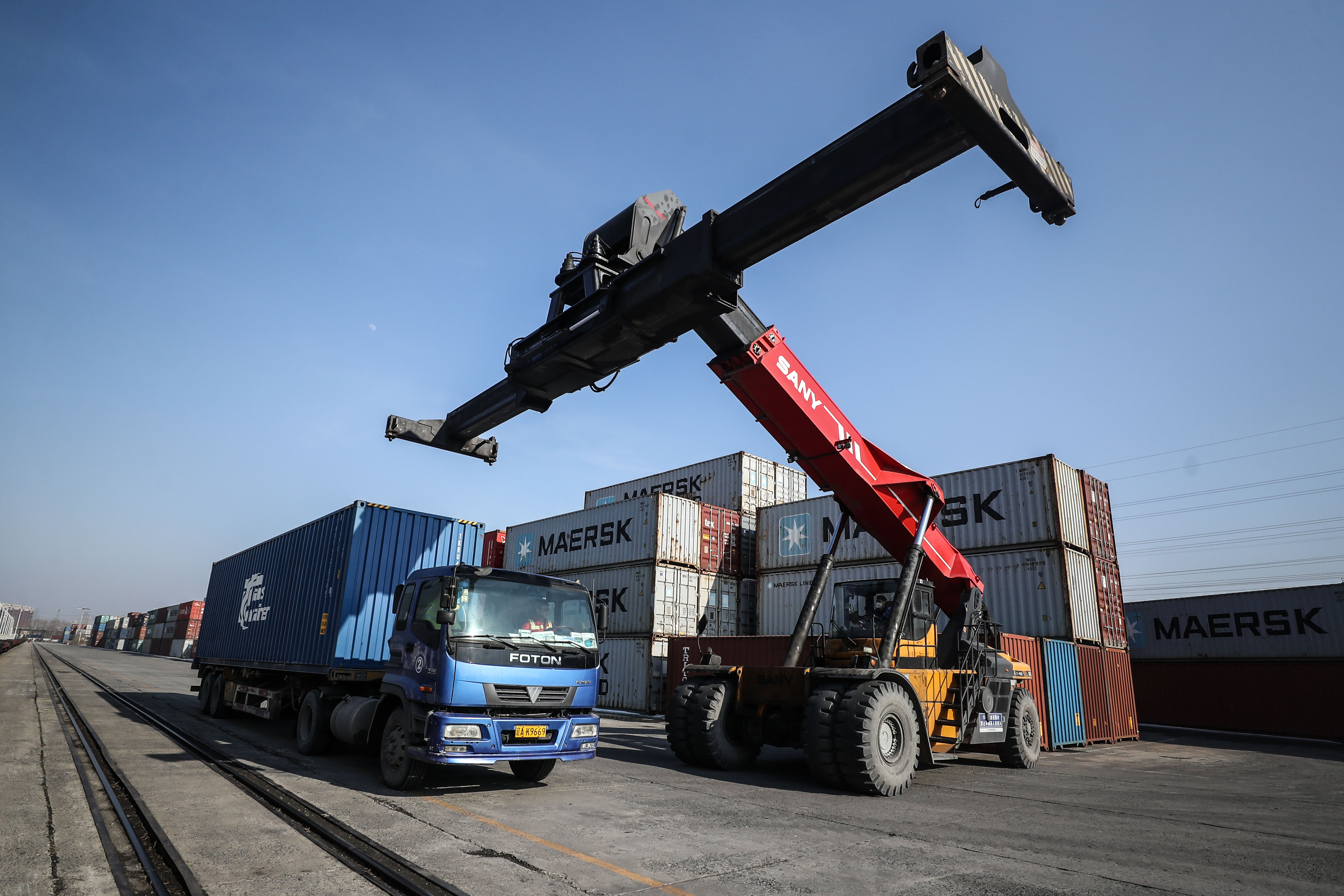China-Europe freight trains help stabilize global supply chain
With the global supply chain being affected by restrictions in air, land, and port travel due to the global pandemic, China-Europe railway has been playing a more important role, experts say.
With trucks standing bumper to bumper and large cranes loading containers on the train, work returned to normal at a logistics base in northeast China's Liaoning province.

Containers at a logistic station of Shenyang East Railway Station in Shenyang, northeast China's Liaoning province, March 5, 2020. [Photo/Xinhua]
The base, where the China-Europe freight trains are set to depart in Shenyang, the provincial capital, has seen stable departures since early April as the novel coronavirus epidemic ebbs away.
With the global supply chain being affected by restrictions in air, land, and port travel due to the global pandemic, China-Europe railway has been playing a more important role, experts say.
"The train was operated by staff in different sections, which means it does not require cross-border personnel health inspections, giving it advantages during the pandemic," said Shan Jing, an industry insider who wrote a book on China-Europe freight trains.
In March, a total of 809 China-Europe freight trains carrying 73,000 containers were sent across China. Both numbers hit a monthly record.
At the Shenyang logistics base, trains depart to travel through Russia, Belarus, Poland and finally reach Germany in around 18 days. As of April 13, a total of 130 trains carrying 11,200 standard containers had departed from the base.
"The province sends a stable number of five trains each week," said He Ruofan, a business manager with the Shenyang branch of China Railway Container Transport Corp., Ltd, operator of the trains.
The stable operation has made the route a top choice for many Chinese enterprises, said Yao Xiang, a manager with logistics group Sinotrans's northeast company.
"Many shipping routes have been canceled, and the rest are more and more expensive amid the epidemic," said Yao, noting the price for air cargo surged 5 to 10 times the normal price as flights decreased from China to Europe.
With increasing departing trains, returning trains on the route have also been increasing, Yao said.
Among the 130 trains that have been sent from the Shenyang base so far this year, 33 returned, carrying construction materials, car parts, mechanical equipment, and daily products.
"These goods provide supplies to large companies like BMW and Michelin's Shenyang factories," Yao said.
Medical supplies have also been sent to hard-hit Europe to fight against the coronavirus pandemic.
As of April 18, a total of 448,000 pieces of medical supplies weighing 1,440 tonnes had been sent to European countries via the route, according to China State Railway Group Company, Ltd.
"China-Europe freight trains have shown great service capabilities during the epidemic," said Shan, the industry insider. "It serves as a new choice for European enterprises, and I believe more people will come to realize the importance of the route."

